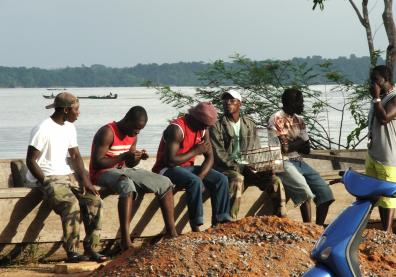Exploring "language policies in practice": advancing the empirical turn in language policy research

The field of language policy has been characterised by a series of theoretical turns (e.g. (Ricento, 2006), which have influenced the ways in which the concept of ‘language policy’ has been understood and studied. The latest of such turns has been referred to as the “Empirical turn” (Johnson and Ricento, 2013) and has seen a strong emphasis on ‘agency’ (e.g. Bouchard and Glasgow, 2019; Liddicoat & Taylor-Leech, 2021) and on micro-level ethnographic investigations of language policy processes (e.g. McCarty, 2011).
In this talk, I will present the concept of ‘practiced language policies’ (Bonacina-Pugh, 2012) and how it has contributed to advancing the Empirical turn in language policy research. Drawing on a Conversation Analysis of a set of interactional data I collected in a Higher Educational setting, I will shed light on:
- what can be referred as the ‘practical’ approach to language policy research (Bonacina-Pugh, 2020),
- what is meant by ‘practice’ in this line of research, and
- how it can be integrated in a broader investigation of language policy as text, discourse and practice.
I will also share my recent reflections on the dynamic nature of practiced language policies (Bonacina-Pugh, 2024) and how it may impact the way we research practiced language policies. Finally, I will show how the concept of ‘practiced language policy’ has recently been adopted and developed in a variety of domains other than that of education, such as the home, online communication, the workplace, healthcare settings and public spaces.
About the seminar
The aim of this seminar is to support M2 and PhD students interested in the use of language practices in contexts such as the family, school, work, health or justice, traversed by issues of power and inequality. An important place is given to relevant methodological approaches and theoretical frameworks (interactional sociolinguistics, critical sociolinguistics, sociology of language, discourse analysis, linguistic anthropology, political anthropology etc.) and to the circulation of knowledge from varied geographical areas and academic traditions in order to link the study of language practices with contemporary socio-anthropological and political issues.
With the support of the Inalco Doctoral School and UMR SeDyL.